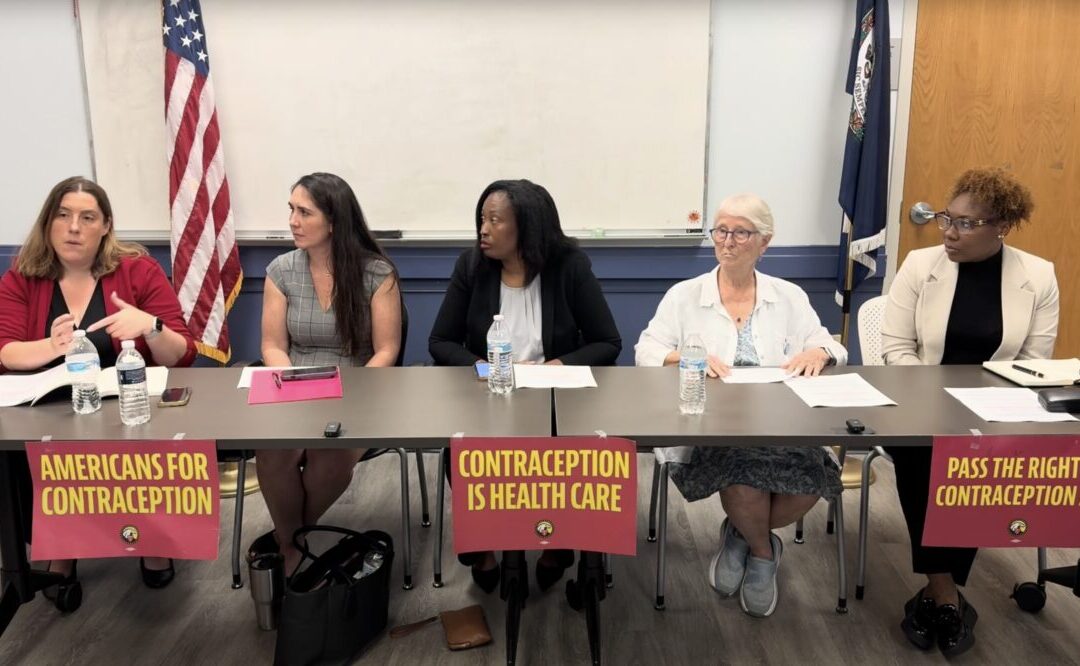
Researchers looked at the air pollution levels while the donor eggs were developing and the 72 days when the sperm was developing and found a link between an increase in exposure to air pollution and lower embryo quality and egg survival in both cases. (AP Photo/Charlie Riedel, File)
Researchers looked at the air pollution levels while the donor eggs were developing and the 72 days when the sperm was developing and found a link between an increase in exposure to air pollution and lower embryo quality and egg survival in both cases.
A new study out of Emory University’s Rollins School of Public Health found that although more people are turning to in vitro fertilization (IVF) treatment than ever before, the success of the process could be affected by air pollution.
IVF involves collecting a woman’s eggs and a man’s sperm and combining the two in a laboratory dish. The resulting embryos are then grown in special incubators, and one or more of them are then transferred into the woman’s uterus. After about 10 days, the woman will take a blood pregnancy test to determine whether the process was successful and if she’s pregnant.
Only about a quarter of the fertilized eggs in a given round of IVF result in an embryo.
For the study, researchers used air pollution data from the Environmental Protection Agency and matched that data with addresses tied to the sperm and egg used in IVF cycles. They specifically used donor eggs, which allowed them to analyze how air pollution was affecting the sperm and the egg separately because the donor lives at another address and is therefore exposed to different pollutants.
In total, researchers analyzed data provided by 915 couples where the male was supplying the sperm and 500 egg donors.
Researchers then looked at the air pollution levels while the eggs were developing and the 72 days when the sperm was developing before being used for fertilization. In both cases, the researchers found a link between an increase in exposure to air pollution and lower embryo quality and egg survival.
They also found a connection between higher concentrations of certain air pollutants, such as organic carbon, on the day that eggs were thawed and lower survival rates of those eggs, as well as lower fertilization rates.
“This is a very clever study,” Mary Willis, an assistant professor in the Department of Epidemiology at the Boston University School of Public Health, told The 19th. “This is probably one of the only studies where you can get at really, really specific biological mechanisms and timing.”
“Because it’s IVF, you know exactly when ovarian stimulation is happening,” she added. “You know exactly when fertilization is happening. So you can get some really specific answers to biological questions that haven’t been answered in the literature.”
The findings of this study are in line with the findings of another study that were presented at the European Society of Human Reproduction and Embryology’s annual meeting in Amsterdam earlier this year. Researchers found that air pollution exposure can decrease the odds of a live birth after IVF treatment by 38%.
Although air quality has improved in the United States over the past few decades, almost 40% of the country’s population lives in areas with unhealthy levels of ozone or particle pollution, according to the American Lung Association’s annual State of the Air report. People of color are even more likely to live in these areas.
“Pollution is harmful to almost all aspects of human health and it’s no surprise to me that reproductive health is also affected,” Dr. Sebastian Leathersich, a fertility specialist and gynecologist from Perth told The Guardian. “I’m hopeful that these findings will help to highlight the urgency of the situation – that climate change poses a serious and immediate threat to human reproductive health, even at so-called safe levels.”

Virginia lawmakers warn—contraception fight is far from over as Trump officials push to destroy $10M supply
Planned Parenthood’s “Bros for Repro” delegates say federal attacks on birth control could foreshadow risks for Virginians. Virginia lawmakers say...

At a Virginia roundtable, advocates warn contraception rights are at risk
The event spotlighted Virginia’s stalled Right to Contraception Act and the broader fight against policies that could strip thousands of Virginians...

In her own words: Why this Texas physician now helps women in Virginia
Dr. Lou Rubino is just one of many physicians who’ve left Texas as a result of the state’s multiple abortion bans—laws that prevent doctors from...

Ghazala Hashmi speaks out: ‘I’m so thankful my doctor could save my life’
The Democrat running for lieutenant governor of Virginia reveals she had two dangerous miscarriages—and pledges to protect reproductive rights for...

Spanberger makes reproductive rights a cornerstone of her run for governor
She's pledging to defend contraception access and expand abortion protections. Virginians got to learn a little more about the Democrat running for...

Supreme Court limits nationwide injunctions, but fate of Trump birthright citizenship order unclear
WASHINGTON (AP) — A divided Supreme Court on Friday ruled that individual judges lack the authority to grant nationwide injunctions, but the...




